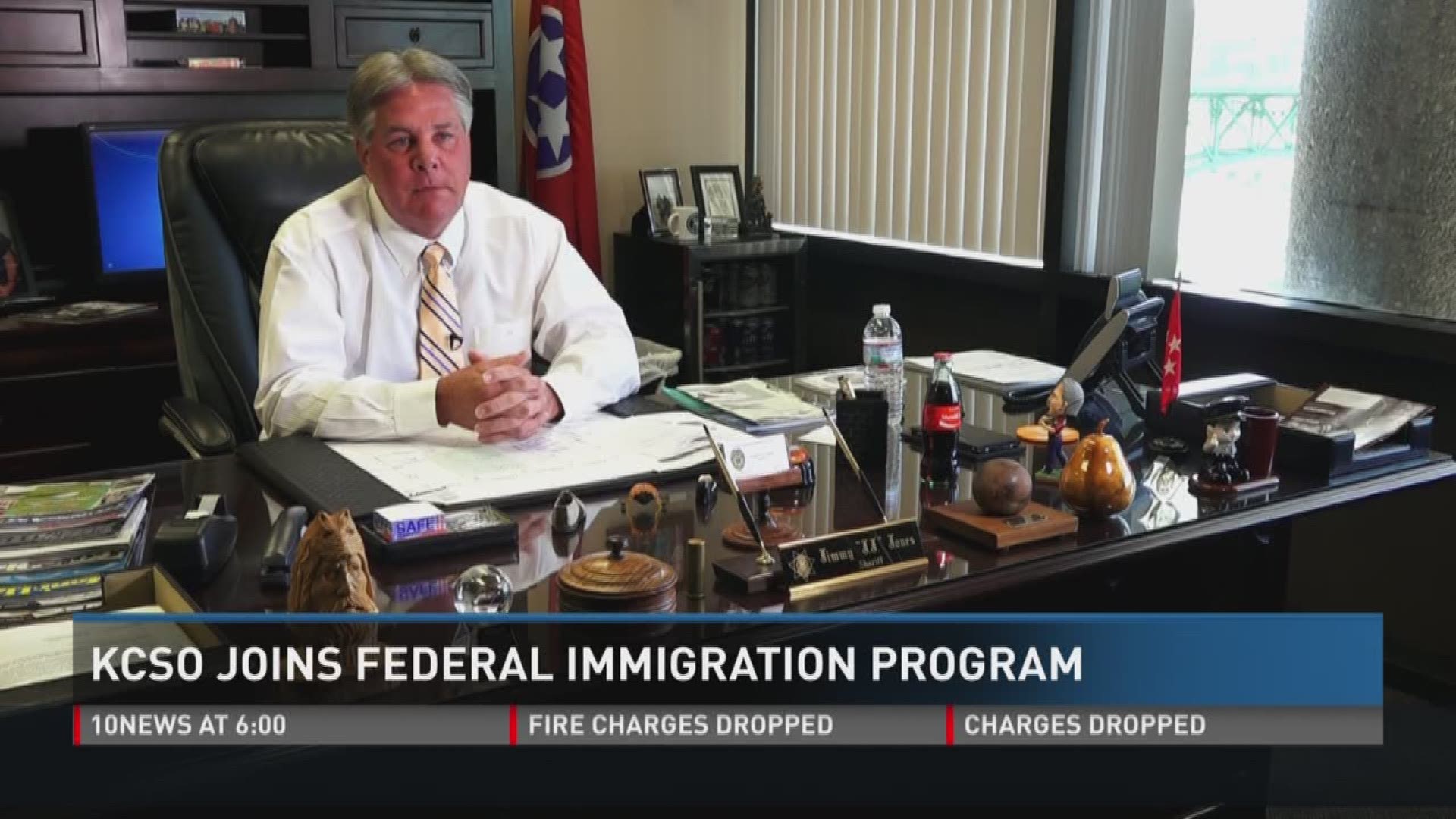A new partnership between the Knox County Sheriff's office and federal immigration authorities will allow deputies to act on behalf of Immigration and Customs Enforcement.
That agreement is ICE’s controversial 287(g) program, which delegates immigration authority from federal agents to local law enforcement through a memorandum of agreement.
Knox County Sheriff J.J. Jones told 10News previously that he hopes the 287(g) program will save taxpayer money and help the jail run more efficiently, since detainees will no longer have to spend 30-40 days in the county jail as ICE considers their deportation.
“Now with 287(g) in our jail, we know within 48 hours if that person is going to be deportable or if the deportation process will start,” Jones said in May.
But Jeremy Jennings, a Knoxville-based immigration attorney, argues that point.
"That's 8-10 Knox County Sheriff's deputies who aren't going to be doing, at least on a fulltime basis, Knox County Sheriff's work,” he said. “They're going to be ICE work on Knox County dime."

Jennings said the ICE program will allow KCSO to interview detainees in the jail regarding their immigration status, make determinations about their deportability, and access federal databases and computer systems.
He said the 287 (g) statute allows local authorities to perform ICE duties “at the expense of the state or political subdivision” – which means the county, not the federal government, would pay for the program.
In May, Sheriff Jones said a 287 (g) designation would allow the county to save taxpayers $100 each day an inmate is not in jail, after that inmate posts bail.
“[If they are not deportable,] they’ll be allowed to make bond, to go back to their jobs, their families, plus they save tax payers $100 a day every day they’re not in jail,” he said.
But because of how federal authorities handle immigrants, Jennings warned, the opposite could ring true.
Jennings said after immigrants pay their bonds, federal immigration officials often then remove them from their local county, preventing them from attending the rest of their criminal proceedings.
“For that reason, we will typically advise our clients to not post a criminal bond, because it just means that you’re going to be whisked away by ICE and you won’t be able to defend your case," Jennings said.
He said that lengthens their detention, because the incentive to pay their criminal bond is removed.
“And so they’re going to spend a longer time in jail waiting for their court date than if there had been no detainer issued in the first place,” Jennings said.
Knox County is now the only law enforcement agency in Tennessee to participate in the program.
In March, Knoxville Mayor Madeline Rogero and Knoxville Police Chief Rausch held a joint press conference to clarify neither the city nor KPD would enforce federal immigration policy.

In a statement issued to 10News on Friday, the city doubled down on that decision.
“The city of Knoxville has no plans to apply to the 287(g) program. One concern with local law enforcement agencies taking an immigration enforcement role is that it will lead to confusion and fear in the community and make it harder for our officers to do their jobs,” city spokesperson Jesse Mayshark wrote.
With the Knox County Sheriff's Office's newly approved ICE partnership, some have pointed to a conflicting message between city and county.
"The problem is if somebody does get booked into the jail for whatever offense that may be, the city no longer controls that situation,” said Jennings. “The Knox County Sheriff’s Office operates the jail, and so 287 (g) is going to implicate people who are arrested by the Knoxville City Police Department.”
On Friday, the Knox County Sheriff’s Office declined to interview until it had “more details on the program."

